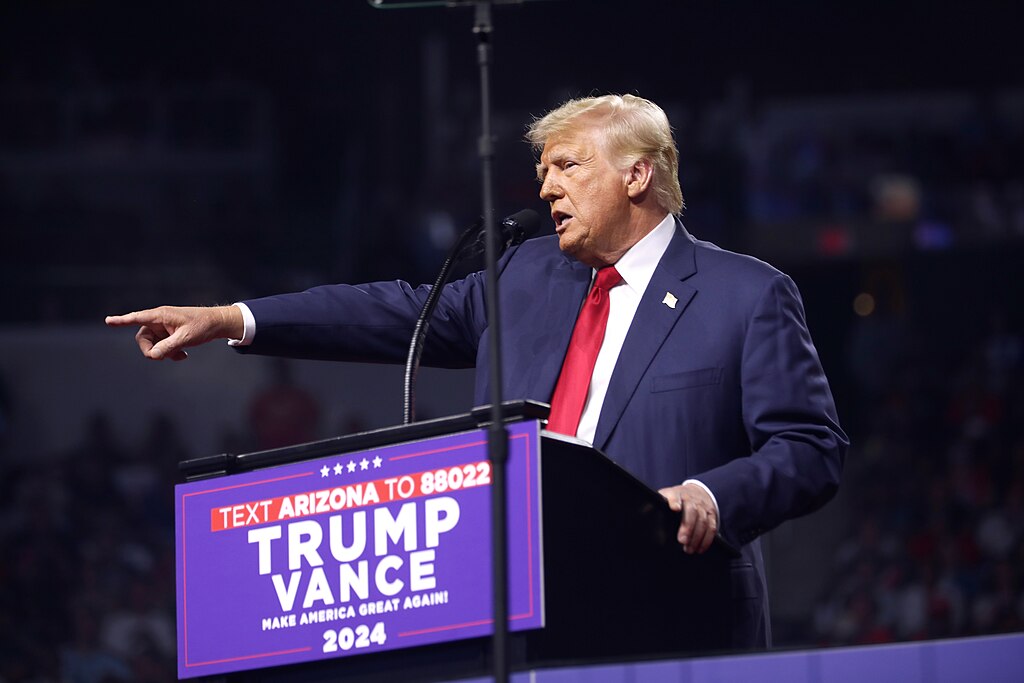President-elect Donald Trump is expected to name Sen. Marco Rubio as his Secretary of State, according to a report from The New York Times. The anticipated nomination of Rubio, a vocal advocate of strong U.S. international engagement, signals Trump’s intentions to bring a high-profile Senate Republican into a critical foreign policy position as his administration takes shape. Sources close to the matter indicate that Rubio’s nomination is all but confirmed and could be officially announced within days.
Rubio, who represents Florida in the Senate, has long been a prominent voice on foreign policy, often pushing for a hard line on adversaries such as China and Iran. He has also advocated for a robust presence in Latin America and been a consistent critic of authoritarian regimes, most notably in Venezuela and Cuba. If confirmed, Rubio would succeed Antony Blinken and assume the helm of the State Department at a time of heightened global tensions, where he would play a pivotal role in implementing Trump’s foreign policy vision.
A Foreign Policy Hawk in a Key Position
Rubio’s potential nomination has sparked both praise and controversy. Supporters argue that his appointment reflects Trump’s commitment to a firm stance against authoritarianism, while critics express concern that his aggressive approach could lead to escalated tensions. Known for his hawkish views, Rubio has frequently pushed for a more interventionist U.S. approach, especially regarding American adversaries.
During his tenure in the Senate, Rubio has been a prominent critic of the Chinese government, advocating for policies that counter its economic and military influence. He has also pushed for sanctions against Russia, championed human rights causes, and expressed deep concerns over Iran’s regional ambitions. “Rubio’s nomination would send a strong message that the Trump administration is not backing down on America’s role as a global leader,” one senior GOP strategist noted.
However, not everyone is thrilled with the possibility of Rubio leading the State Department. Some Democratic lawmakers and foreign policy experts worry that his hardline approach could complicate diplomatic relations and lead to a more confrontational U.S. stance on the world stage. Critics argue that his outspoken views might alienate allies and provoke adversaries, making diplomacy more challenging.
A Surprising Alliance
The choice of Rubio as Secretary of State marks a notable shift for Trump, who clashed publicly with Rubio during the 2016 Republican primaries. The two exchanged heated words throughout the campaign, with Trump frequently mocking the Florida senator, and Rubio criticizing Trump’s policy knowledge. Despite their past friction, Trump’s decision to bring Rubio into his administration is seen as a testament to the senator’s influence and expertise in foreign affairs.
“This is not about the past; this is about what’s best for America moving forward,” a source close to the administration remarked. “Rubio’s experience and commitment to American values abroad make him a perfect fit.”
Rubio’s Focus Areas and Potential Challenges
If confirmed, Rubio is expected to prioritize U.S. policy toward China, Russia, and Latin America. Analysts predict that his tenure would likely focus on strengthening alliances and enhancing America’s competitive edge globally, particularly in response to the rise of China. But his hawkish approach may come with challenges, especially if his assertive stance creates friction with key international players.
The rumored nomination of Rubio as Secretary of State has set off a wave of reactions across Washington, with some speculating that his leadership at the State Department could reshape U.S. foreign policy. As Trump moves forward with his administration, all eyes will be on Rubio’s confirmation process, which promises to be a flashpoint in the Senate.



 US Pushes Ukraine-Russia Peace Talks Before Summer Amid Escalating Attacks
US Pushes Ukraine-Russia Peace Talks Before Summer Amid Escalating Attacks  Trump Lifts 25% Tariff on Indian Goods in Strategic U.S.–India Trade and Energy Deal
Trump Lifts 25% Tariff on Indian Goods in Strategic U.S.–India Trade and Energy Deal  Ohio Man Indicted for Alleged Threat Against Vice President JD Vance, Faces Additional Federal Charges
Ohio Man Indicted for Alleged Threat Against Vice President JD Vance, Faces Additional Federal Charges  China Warns US Arms Sales to Taiwan Could Disrupt Trump’s Planned Visit
China Warns US Arms Sales to Taiwan Could Disrupt Trump’s Planned Visit  Trump Signs Executive Order Threatening 25% Tariffs on Countries Trading With Iran
Trump Signs Executive Order Threatening 25% Tariffs on Countries Trading With Iran  Norway Opens Corruption Probe Into Former PM and Nobel Committee Chair Thorbjoern Jagland Over Epstein Links
Norway Opens Corruption Probe Into Former PM and Nobel Committee Chair Thorbjoern Jagland Over Epstein Links  Trump Backs Nexstar–Tegna Merger Amid Shifting U.S. Media Landscape
Trump Backs Nexstar–Tegna Merger Amid Shifting U.S. Media Landscape  U.S. Lawmakers to Review Unredacted Jeffrey Epstein DOJ Files Starting Monday
U.S. Lawmakers to Review Unredacted Jeffrey Epstein DOJ Files Starting Monday  Jack Lang Resigns as Head of Arab World Institute Amid Epstein Controversy
Jack Lang Resigns as Head of Arab World Institute Amid Epstein Controversy  Trump Allegedly Sought Airport, Penn Station Renaming in Exchange for Hudson River Tunnel Funding
Trump Allegedly Sought Airport, Penn Station Renaming in Exchange for Hudson River Tunnel Funding  Nighttime Shelling Causes Serious Damage in Russia’s Belgorod Region Near Ukraine Border
Nighttime Shelling Causes Serious Damage in Russia’s Belgorod Region Near Ukraine Border  South Korea Assures U.S. on Trade Deal Commitments Amid Tariff Concerns
South Korea Assures U.S. on Trade Deal Commitments Amid Tariff Concerns  Trump Allows Commercial Fishing in Protected New England Waters
Trump Allows Commercial Fishing in Protected New England Waters  TrumpRx Website Launches to Offer Discounted Prescription Drugs for Cash-Paying Americans
TrumpRx Website Launches to Offer Discounted Prescription Drugs for Cash-Paying Americans  Missouri Judge Dismisses Lawsuit Challenging Starbucks’ Diversity and Inclusion Policies
Missouri Judge Dismisses Lawsuit Challenging Starbucks’ Diversity and Inclusion Policies  TrumpRx.gov Highlights GLP-1 Drug Discounts but Offers Limited Savings for Most Americans
TrumpRx.gov Highlights GLP-1 Drug Discounts but Offers Limited Savings for Most Americans 































